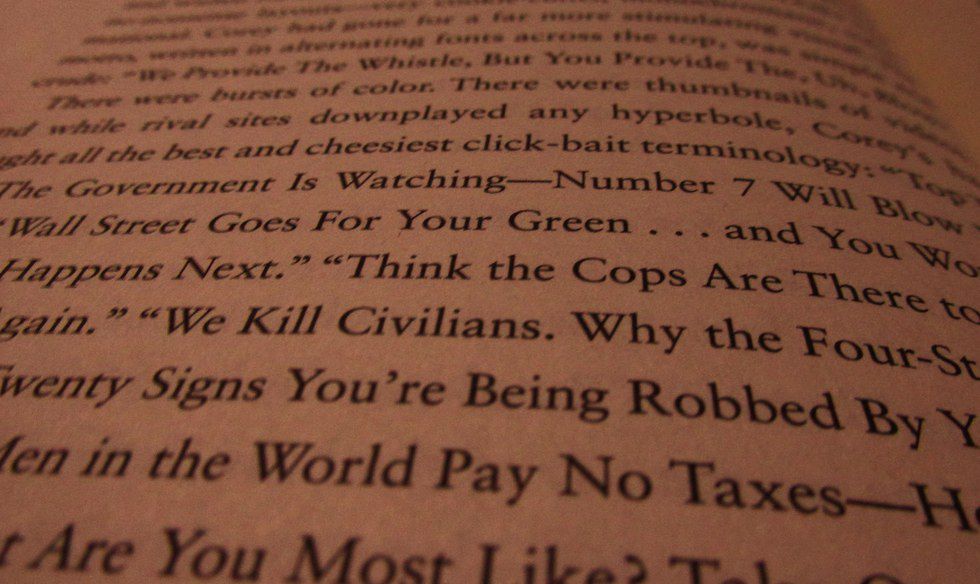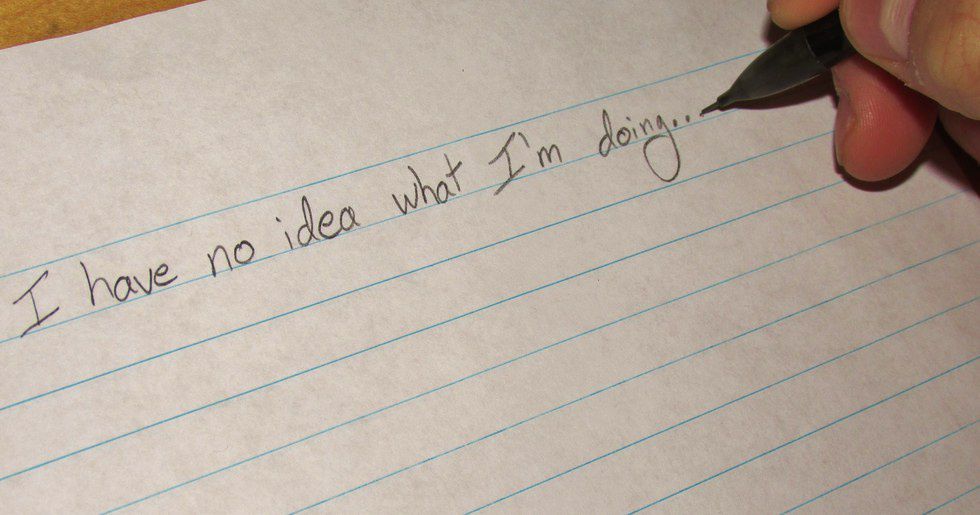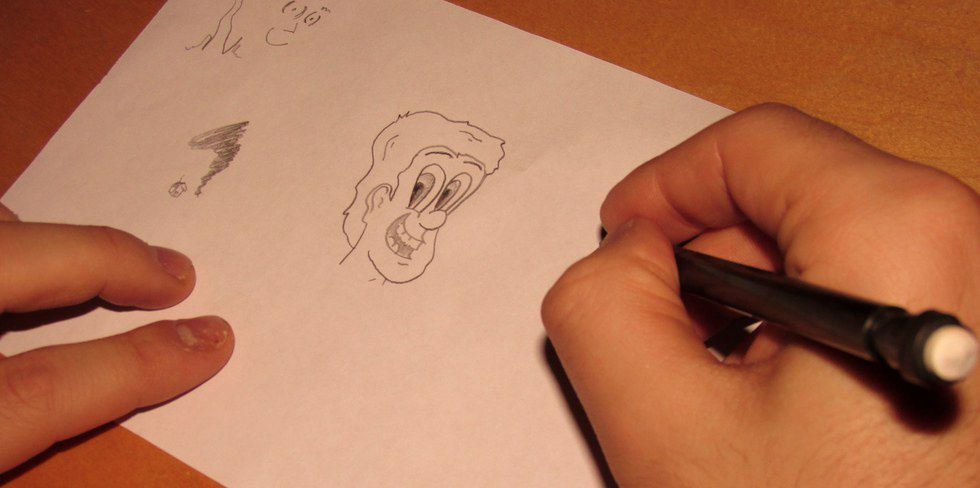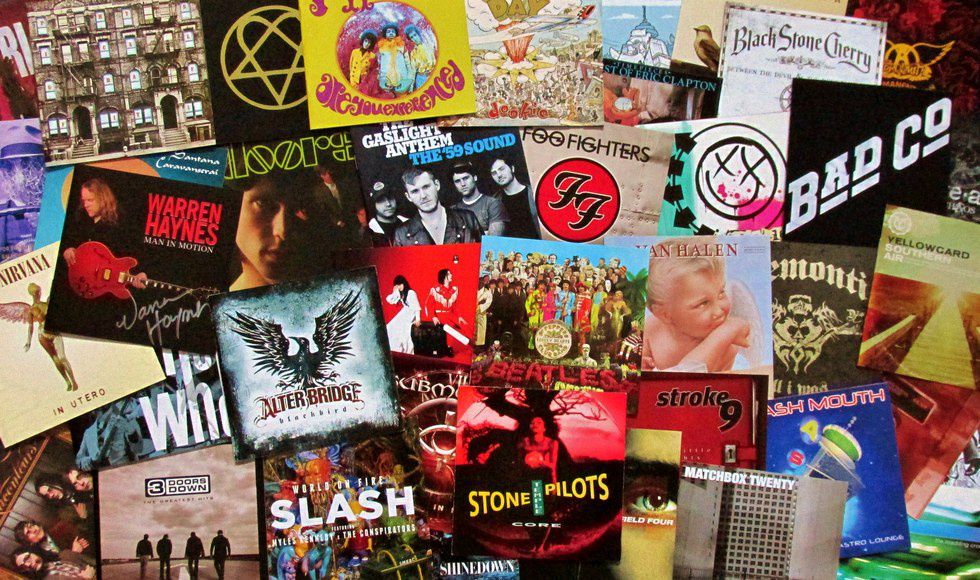One ongoing difficulty all students and writers face occasionally is the dreaded writer’s block; your head is void of any creative or continuous thought, and your writing draws to a standstill. Most of us just continue to stare at the screen or the page until a minuscule thought pops into our head, and we get that down on the page as quickly as possible. However, if you do find yourself suffering from writer’s block while sitting down to write a story, article or essay, try one, some or all of these tips guaranteed to help.
1. Remove all distractions
 Turn off your phone — that’s number one — and stay away from the TV. In some cases, you may even want to turn off your Internet. If you have to research, leave the Internet on — just stay away from Facebook, Twitter, Tumblr, Reddit, Netflix, YouTube and any other social networking site you might belong to. Eliminating distractions is key to keeping you focused on the task at hand.
Turn off your phone — that’s number one — and stay away from the TV. In some cases, you may even want to turn off your Internet. If you have to research, leave the Internet on — just stay away from Facebook, Twitter, Tumblr, Reddit, Netflix, YouTube and any other social networking site you might belong to. Eliminating distractions is key to keeping you focused on the task at hand.2. Read
Just read. Whether it be a novel or a short story or a poem or a magazine or a newspaper article, read something with words on it. When you can’t seem to put words on paper, reading will “revive you,” so to speak, and help you find the written voice you’ve lost.
3. Exercise
Do some jumping jacks, push-ups, crunches, yoga — anything to stay active. You can go outside and shoot hoops, walk around the block, swim a few laps in your neighbor’s pool — it doesn’t matter. All of these outdoor (and sometimes indoor) activities will help you relax and lessen the stress in your head.
5. Write on paper
I think it’s safe to assume you’ve been drafting your work on a computer rather than on paper. When you come to a dead stop in your writing, switch it up a bit –– continue or start on paper. Many writers find that writing on loose-leaf paper or in a notebook produces different results from typing on a computer.
6. Doodle
Look away from the screen. Grab a piece of paper. Steal a pencil or a pen. Begin to doodle. It doesn’t matter if you’re an artist or not — draw something, whether it’s a cartoon character or just squiggles. Studies have shown that drawing, sketching or just plain doodling can be tools to facilitate thinking. There are a number of cognitive benefits of doodling so after a half an hour to a couple of hours of drawing, your brain will be refreshed, and you will be able to look at the page with a new, better-focused perception.
7. Play an Instrument
If you don’t have any instruments in your home, this may pose as a bit of a problem; however, even banging two pencils against a table in beat with your favorite songs will help you out. Writers will often stare at their screen for way too long, and even if you’re not suffering from writer’s block, it’s always good to take a break from something. Playing an instrument will help you get your creative juices flowing. Try to create a new riff, a new beat, a new song or play mindlessly. Just give your head a break.
8. Listen to Music
I’d argue that it has to be good music, but that’s too subjective to get into right now so anything with at least somewhat passable lyrics that you enjoy and think is good will suffice. Music has a way of opening us up, filtering out all of the nonsense in our minds, and giving us new, creative ideas. You may often find that after you listen to an album or two, your head is filled with ideas. That’s just the power of good music.
10. Write
This may seem like the stupidest word of advice to combat writer’s block. If you didn’t have writer’s block in the first place, you would be writing. Well, that’s not always correct. To produce a story or an article or an essay, you need to write—that’s pretty obvious. And if you’re having trouble getting the things you want to say on the paper, try to write down what you’re thinking as best as possible. Even if your piece isn’t that good, it’s just a rough draft — you can always go back and revise and edit. If you’re still having trouble, try 15-30 minute intervals of free writing, where you write about anything else. There are prompts online to help you out, but you should definitely try to write, even if you don’t particularly like what you’re writing about. Even a phrase that isn’t that good can trigger a spark that causes a kamikaze of good ideas to start spewing onto the page.




























